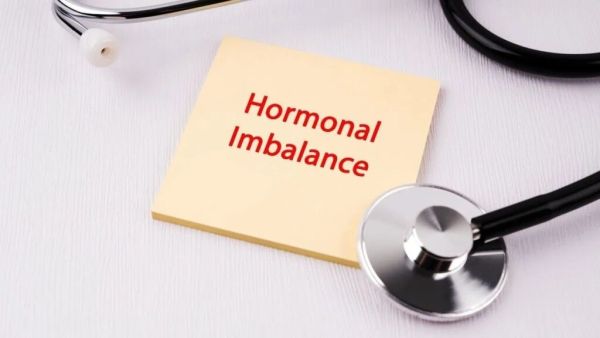
Hormones are chemical messengers produced in our bodies that deliver messages throughout the body through the bloodstream. These regulate our mood, energy, metabolism, sleep, appetite, menstruation, reproductive health and growth. When due to some reason the level of hormones in the body becomes too high or too low, it is called hormonal imbalance.
Its effects appear gradually and people often ignore them, considering them as normal fatigue or stress. However, if left untreated, they can cause weight gain, irregular menstruation, skin problems and even mental changes.
Hormonal imbalance can occur due to many reasons. Lifestyle disorders are the most common reasons for this. Wrong eating habits, lack of sleep and constant stress can cause hormonal imbalance. In women, pregnancy, PCOS, menopause, and thyroid problems can also cause it. Additionally, excessive consumption of junk food, high-sugar diet, low physical activity, obesity and inflammation can also affect the body’s hormonal system.
In some cases, genetic factors, excessive medication intake, excessive caffeine or alcohol consumption, and irregular daily routine may also be responsible. Environmental chemicals like BPA in plastics can also affect the endocrine system. It is important to immediately address these factors so that the body can regain balance.
What are the symptoms of hormonal imbalance?
Dr. Saloni Chadha, Assistant Professor, RML Hospital, explains that hormonal changes can cause many types of symptoms. The most common symptom is persistent fatigue, even if you are getting enough sleep. Sudden weight gain or loss is also a sign. In women, irregular menstruation, increased acne, hair fall or growth of unwanted body hair are common symptoms of hormonal imbalance.
Mood swings, irritability, anxiety, and feelings of depression may also be hormone . Insomnia or excessive sleep, sudden changes in appetite, digestive problems, facial swelling, frequent headaches and loss of libido are also symptoms. If these symptoms persist for a long time, it is important to consult a doctor.
How to stop it?
A balanced diet, adequate sleep, regular exercise, and stress-reducing habits can improve hormonal balance. Additionally, reduce sugar intake, drink plenty of water and maintain a healthy lifestyle.
-
SRK pays tribute to 26/11 victims at Global Peace Honours

-
'Resilience can't be built in silos': PM Modi proposes critical minerals, satellite data initiatives at G20

-
'Truly sorry': Sephora apologises after event visitors complain of long queues, delays

-
Ooty vs Coorg: Queen of the Hills Ooty or Scotland of India, Coorg vs Ooty, which hill station is best for you?

-
What is Acute Myeloid Leukemia: JFK's granddaughter Tatiana Schlossberg diagnosed with the disease
